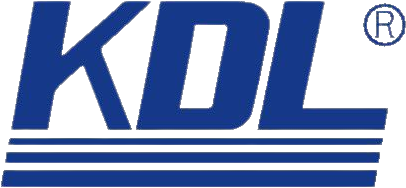
When it comes to medical supplies, ensuring the quality of needles and syringes is crucial. These products play a vital role in patient care, vaccinations, and medical treatments. Poor-quality needles and syringes can lead to serious health risks, including infections, inaccurate dosages, and device malfunctions.
This guide will help healthcare providers, procurement managers, and medical suppliers navigate the process of sourcing high-quality needles and syringes by covering essential factors such as regulatory compliance, material quality, supplier reliability, and cost-effectiveness.
Why Quality Matters in Medical Needles and Syringes
Using high-quality needles and syringes ensures:
- Patient Safety & Infection Control – Sterile, well-manufactured products reduce the risk of infections and complications.
- Regulatory Compliance – Medical products must meet global safety and quality standards.
- Durability & Precision – Needles should be sharp, durable, and easy to use, while syringes should ensure accurate dosing.
- Avoidance of Breakage & Leakage – Poorly made needles can break inside patients, and substandard syringes can leak, leading to wasted medication and contamination.
Key Factors to Consider When Sourcing Needles and Syringes
Regulatory Compliance and Certification
Ensuring that your supplier meets global medical standards is essential. Look for:
- ISO 13485 Certification – Ensures adherence to medical device quality management systems.
- FDA Approval – Required for the U.S. market to ensure compliance with health regulations.
- CE Marking – Indicates compliance with European health and safety standards.
- WHO PQS Certification – Ensures quality and safety for medical equipment used in global health programs.
Before purchasing, always request and verify compliance documentation.
Material Quality and Manufacturing Standards of medical needles and syringes
The durability and sterility of medical needles and syringes depend on high-quality materials:
- Needles – Should be made of stainless steel to ensure strength and sharpness.
- Syringes – Must be manufactured from medical-grade plastic such as polypropylene or polyethylene.
- Sterilization – Look for products sterilized using methods like ethylene oxide (EO) sterilization or gamma irradiation to eliminate contaminants.
Types and Specifications to Consider
Different medical applications require different types of needles and syringes.
- Needle Gauge & Length
- Higher gauge = thinner needle (e.g., 30G for insulin, 18G for blood draws)
- Length varies depending on use (intramuscular, subcutaneous, intravenous)
- Syringe Volume
- Ranges from 0.5ml to 60ml depending on medical applications
- Specialized syringes include insulin syringes, tuberculin syringes, and Luer lock syringes
Supplier Reputation and Reliability
To avoid counterfeit or substandard medical supplies, source from a reputable supplier.
- Research supplier history and reputation
- Check customer reviews and testimonials
- Ensure global distribution capability
- Request product samples to test quality before placing bulk orders
Packaging and Sterility Assurance
Proper packaging protects the integrity of medical devices:
- Individually sealed syringes and needles reduce contamination risks.
- Tamper-proof packaging ensures sterility and product safety.
- Storage and transportation should comply with international regulations to maintain sterility during transit.
Cost vs. Quality Balance
While cost is an important factor, never compromise on quality.
- Compare pricing from multiple suppliers
- Avoid extremely cheap products, as they may be of inferior quality
- Negotiate bulk purchase discounts and long-term contracts to ensure cost-effectiveness without sacrificing quality
Sustainability and Eco-Friendly Options
As the healthcare industry shifts towards sustainability, consider:
- Biodegradable or recyclable materials for syringes
- Manufacturers that follow sustainable and ethical production practices
- Proper disposal methods for medical waste to minimize environmental impact
How to Find the Right Medical Needles and Syringes Supplier
To ensure a smooth procurement process, follow these steps:
- Research potential suppliers – Look for companies with industry experience and strong customer reviews.
- Request compliance documentation – Verify certifications to ensure the products meet international standards.
- Order samples for quality testing – Assess material durability, usability, and sterility.
- Evaluate supply chain logistics – Ensure the supplier can handle your order volume and deliver on time.
- Negotiate pricing and contract terms – Secure the best deal while maintaining product quality and compliance.
Why KDL is the Trusted Choice for High-Quality Needles and Syringes
KDL has earned a strong reputation as a trusted manufacturer and supplier of high-quality needles and syringes, serving healthcare providers worldwide with precision-engineered medical devices. With a steadfast commitment to safety, durability, and compliance, KDL ensures that all products meet international standards such as ISO 13485, FDA, and CE certifications.
Utilizing top-grade stainless steel and medical-grade plastics, KDL’s needles and syringes undergo rigorous quality control and sterilization processes to guarantee reliability and patient safety. Beyond quality, KDL stands out for its customer-centric approach, offering tailored custom product solutions, competitive pricing, and a global distribution network to ensure seamless procurement.
Additionally, the company embraces sustainable practices, incorporating eco-friendly materials and ethical manufacturing to reduce environmental impact. Whether for hospitals, clinics, or medical distributors, KDL remains the preferred choice for high-quality, dependable needles and syringes, reinforcing trust in every medical application.
Conclusion
Sourcing high-quality needles and syringes requires careful consideration of multiple factors, including certifications, material quality, supplier credibility, and cost-effectiveness. By following this guide, healthcare providers and procurement managers can ensure they receive safe, effective, and reliable medical supplies.

